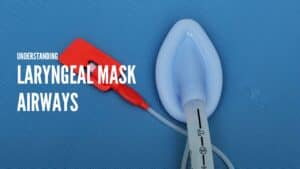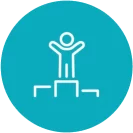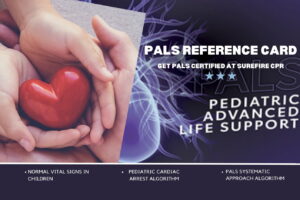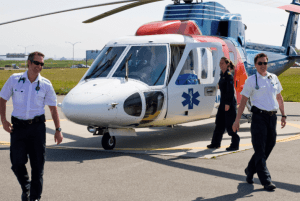
Understanding Laryngeal Mask Airways: The Role of LMA
What does LMA mean? Laryngeal mask airway (LMA) ventilation has been a preferred method of ventilation since
Responding to emergencies involving children can be challenging both mentally and emotionally. In the face of these difficult situations, you’ll need to be able to quickly recall life-saving skills for young patients. Pediatric Advanced Life Support (PALS) gives you the necessary preparation and training to keep pediatric patients safe.

PALS courses are intended for healthcare providers who have the potential to treat infants and children. Through PALS training, you will learn important skills like pediatric assessment, management of pediatric respiratory emergencies, vascular access, and more.
Pediatric patients require different care than adults. If you respond to emergencies with young patients, it’s essential to know the differences between adults and pediatrics so that you can provide the best possible care.
PALS principles are used to provide support in life-threatening situations involving children. From CPR to PALS pharmacology, Pediatric Advanced Life Support encompasses a variety of treatments and techniques.
You can get PALS certified at your convenience with SureFire CPR. With online and in-person options available at a variety of times, it’s easy to fit training into your busy schedule. Sign up for a course today!

Don’t leave an emergency up to chance.
Become an expert in PALS and receive a certification that’s valid for 2 years. Sign up for a PALS certification course with SureFire CPR, available as a traditional in-person lesson or a hybrid online class with a brief skills check at one of our offices across Southern California.

Renew your PALS certification before it expires.
You’ve put in the work to get certified, don’t let it go to waste! Take a renewal course with SureFire CPR to maintain your PALS certification and get a refresher on key PALS concepts.

Never worry about what to do in case of a pediatric emergency again. Learn the components of PALS in an engaging and comfortable environment at SureFire CPR.

If your team or organization could benefit from PALS certifications, try our group training opportunities. Our PALS group training at SureFire CPR is a quick and easy way to ensure your entire team is ready for the next emergency.

I spent 15 years as a firefighter and paramedic, and I rely on PALS to save children’s lives…
Responding to emergencies involving pediatric patients is one of the most challenging aspects of being a healthcare provider. These situations can be very upsetting, so it’s important to be well-prepared so that you can treat young patients without hesitation. PALS training equips you with skills and expertise you can rely on in the field, so you can be confident in your ability when lives are on the line.


What does LMA mean? Laryngeal mask airway (LMA) ventilation has been a preferred method of ventilation since

Responding to emergency pediatric cases is, for many, one of the most difficult aspects of being a

There are few careers as intense and important as those of flight paramedics. In this guide, we
The first priority in pediatric resuscitation is to establish sufficient ventilation with BLS support of circulation.
There are many key topics to understand about PALS, such as the pediatric cardiac arrest algorithm. In order to effectively administer pediatric life support, you need to complete a PALS course and become certified.
AHA guidelines recommend starting with 2 joules per kilogram. If 2 joules are not successful, rescuers should increase the dosage to 4 joules per kilogram.
According to the AHA, “pediatric patients are infants, children, and adolescents up to 18 years of age, excluding newborns.”
ACLS and PALS training addresses many of the same life-saving techniques, but PALS is targeted toward pediatric patients and ACLS applies to adult patients.
Office: (888) 277-3143
Text: (949) 569-5726
Get the Free Ultimate CPR Guide
Your info will never be passed on to third parties. Read our privacy party to learn how we keep your data safe.